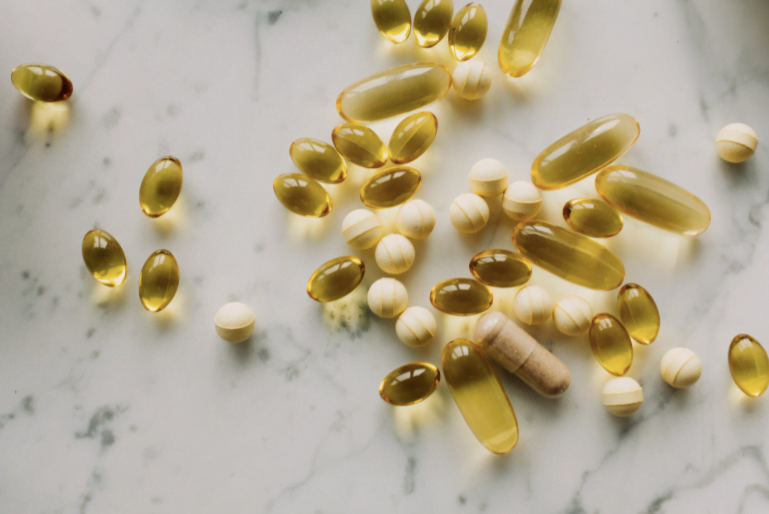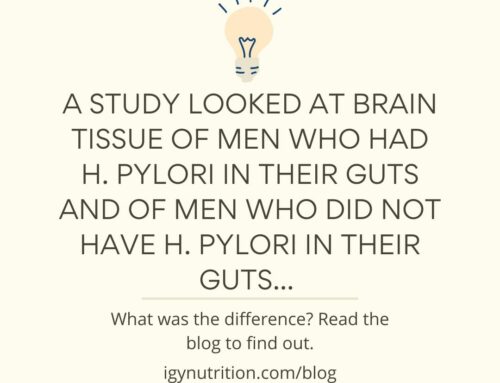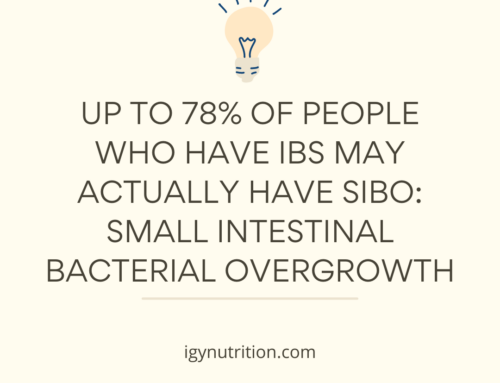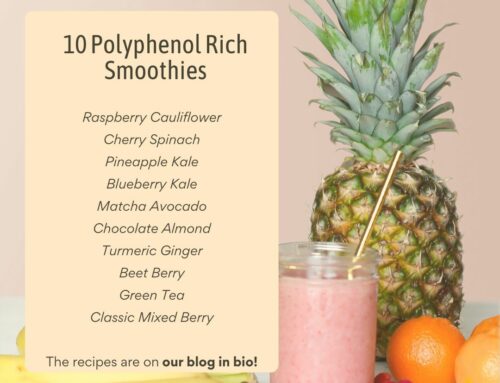Keto. Paleo. Vegan. Vegetarian. Gluten-free, dairy-free, low-carb, carnivore… the list goes on.
With all of the pop diets out there these days, how do you know which ones are healthy and would suit you?
Through this blog series, we’ll teach you how to evaluate diets based on science – no matter what your favorite influencer says about it.
We recommend starting at part one, but here’s a recap. When evaluating diets, you’ll want to check on a few different characteristics, including:
- Fiber intake
- Polyphenol content
- Probiotic / fermented food content
- Electrolyte intake
- Processed food content
- Micronutrient intake
- Caloric intake
- Fat, protein, and carbohydrate intake
- Gluten, dairy, or sugar intake: other triggers
- Price
- Sustainability
- Adherence / lifestyle match
That sounds like a lot – but tracking these criteria is much simpler than it sounds.
Let’s jump in! Today, we’ll look at micronutrient (vitamin) intake.
Vitamin Intake
It’s no secret that vitamins are critical to whole-body health. The body uses vitamins as building blocks. Vitamin deficiencies can create a whole host of problems!
Thinking a vitamin deficiency isn’t so bad? Think again!
Vitamin deficiencies can cause:
- Anemia (decreased blood oxygenation)
- Due to low iron or vitamin B12 (1, 2)
- Decreased bone density
- Due to low vitamin B12, vitamin D, or calcium (3, 4, 5)
- Chronic fatigue
- Several different vitamin deficiencies may cause it (6)
- Hormone fluctuations
- Several vitamin deficiencies may cause it (7)
- Irregular menstruation
- Several vitamin deficiencies may cause it, especially vitamin D (8, 9)
- Thyroid issues
- Iodine, selenium, iron, vitamin B12, vitamin D, L-tyrosine, or other vitamin deficiencies may cause them. (10, 11, 12, 13, 14)
- Hair loss
- Iodine, selenium, iron, vitamin B12, L-tyrosine, or other vitamin deficiency may cause it. (10, 11, 12, 13, 14)
- Body composition changes
- Iodine, selenium, iron, vitamin B12, L-tyrosine, or other vitamin deficiency may cause it. (10, 11, 12, 13, 14)
- Sleep changes
- A lack of magnesium, choline, tryptophan or other vitamins may cause it (15, 16, 17)
- Cognition and memory changes
- A lack of magnesium, choline, tryptophan or other vitamins may cause it (18, 19, 20)
- Poor digestion due to low stomach acid
- A lack of vitamin B12 or other vitamins may cause it (21)
- Leaky gut syndrome or low gut barrier integrity
- A lack of Omega 3 fatty acids, zinc, or vitamin D may cause it (22, 23, 24)
- Poor immune function
- A lack of Omega 3 fatty acids, zinc, iron, B12, vitamin D, or other vitamins may cause it. (25, 26, 27, 28, 29)
- Many other problems may ensue!
That’s a long list, huh? Let’s take a look at gut barrier integrity and vitamins in more detail as an example.
Three vitamins are especially important for gut barrier integrity: omega 3, zinc, and vitamin D (22, 23, 24).
Omega 3 vitamins are valuable for decreasing inflammation in the gut and improving microbiome composition, which can be a root cause of leaky gut syndrome (22). Omega 3 vitamins are also crucial for a healthy hormone balance, indirectly impacting gut health.
1000 mg of Omega 3 vitamins is the daily recommended dose (30).
Zinc is also incredibly valuable for immune and gut health. It is often recommended for those with colitis, Crohn’s disease, dysbiosis, SIBO, parasitic infections, or other gut issues because of its role in repairing gut lining (23).
Lastly, vitamin D is valuable for mending or preventing leaky gut syndrome. A deficiency in vitamin D may cause leaky gut syndrome – so making sure you’ve got enough vitamin D is key to overcoming the syndrome (24).
Vitamin D is a gut health superstar: it decreases inflammation, upregulates beneficial bacteria, improves food breakdown and absorption, and, as we saw above, repairs gut lining.
So let’s take a look at some diets and which vitamins they tend to be deficient in:
Super “clean” diets may be low in iodine. Iodine is found in salt, which these “clean” diets tend to lack. That’s an easy fix – just sprinkle some salt on your food!
Vegan and vegetarian diets tend to be low in iron, vitamin D, choline, and vitamin B12. This issue is an easy fix, too – several supplement companies create affordable multivitamins for vegans.
Carnivore diets tend to be low in several plant-derived vitamins, including folate, vitamin K, manganese, vitamin C, and more. You’ll want to consume a high-quality, broad-spectrum multivitamin if you are a carnivore. Consider adding a greens drink to add at least some polyphenols and fiber.
Keto diets also tend to be low in the vitamins that come from plants. Consider adding in a low-carb greens drink to add at least some polyphenols and fiber. You’ll also want to consume a high-quality, broad-spectrum multivitamin.
When evaluating a diet, check on its vitamin intake to avoid the health threats of vitamin deficiencies.
If you’re curious about the vitamins that your diet of choice provides, record your food for a week in an app that tracks vitamin intake. We recommend Cronometer.
If you’re dead set on sticking with a specific diet, we suggest supplementing with a multivitamin that addresses your needs.
Check out the rest of the blogs in this series to finalize your diet-analysis skills. Tag us on Instagram @igynutrition. Thanks for joining us today!
References
- https://www.hopkinsmedicine.org/health/conditions-and-diseases/irondeficiency-anemia
- https://www.hopkinsmedicine.org/health/conditions-and-diseases/vitamin-b12-deficiency-anemia
- Dai, Zhaoli, and Woon-Puay Koh. “B-vitamins and bone health–a review of the current evidence.” Nutrients vol. 7,5 3322-46. 7 May. 2015, doi:10.3390/nu7053322 https://www.ncbi.nlm.nih.gov/pmc/articles/PMC4446754/
- Laird E, Ward M, McSorley E, Strain JJ, Wallace J. Vitamin D and bone health: potential mechanisms. Nutrients. 2010 Jul;2(7):693-724. doi: 10.3390/nu2070693. Epub 2010 Jul 5. PMID: 22254049; PMCID: PMC3257679. https://pubmed.ncbi.nlm.nih.gov/22254049/#:~:text=Vitamin%20D%20is%20a%20secosteriod,children%20and%20osteomalacia%20in%20adults.
- Zhu K, Prince RL. Calcium and bone. Clin Biochem. 2012 Aug;45(12):936-42. doi: 10.1016/j.clinbiochem.2012.05.006. Epub 2012 May 17. PMID: 22609892. https://pubmed.ncbi.nlm.nih.gov/22609892/#:~:text=Calcium%20also%20plays%20a%20role,across%20countries%20and%20age%20groups.
- Werbach MR. Nutritional strategies for treating chronic fatigue syndrome. Altern Med Rev. 2000 Apr;5(2):93-108. PMID: 10767667. https://pubmed.ncbi.nlm.nih.gov/10767667/
- HARROW B. The interrelationships of enzymes, vitamins and hormones. Sci Mon. 1947 Mar;64(3):242-6. PMID: 20295258. https://pubmed.ncbi.nlm.nih.gov/20295258/
- Łagowska K. The Relationship between Vitamin D Status and the Menstrual Cycle in Young Women: A Preliminary Study. Nutrients. 2018 Nov 11;10(11):1729. doi: 10.3390/nu10111729. PMID: 30423869; PMCID: PMC6265788. https://pubmed.ncbi.nlm.nih.gov/30423869/
- Fayet-Moore, Flavia et al. 2013/03/18. Avoidance of meat and poultry decreases intakes of omega-3 fatty acids, vitamin B-12, selenium and zinc in young women. 10.1111/jhn.12092. Journal of human nutrition and dietetics: the official journal of the British Dietetic Association. https://www.researchgate.net/publication/236050142_Avoidance_of_meat_and_poultry_decreases_intakes_of_omega-3_fatty_acids_vitamin_B-12_selenium_and_zinc_in_young_women
- Zimmermann MB, Boelaert K. Iodine deficiency and thyroid disorders. Lancet Diabetes Endocrinol. 2015 Apr;3(4):286-95. doi: 10.1016/S2213-8587(14)70225-6. Epub 2015 Jan 13. PMID: 25591468. https://pubmed.ncbi.nlm.nih.gov/25591468/#:~:text=Severe%20iodine%20deficiency%20causes%20goitre,enable%20production%20of%20thyroid%20hormone.
- Arthur JR, Nicol F, Beckett GJ. The role of selenium in thyroid hormone metabolism and effects of selenium deficiency on thyroid hormone and iodine metabolism. Biol Trace Elem Res. 1992 Sep;34(3):321-5. doi: 10.1007/BF02783686. PMID: 1384621. https://pubmed.ncbi.nlm.nih.gov/1384621/#:~:text=Selenium%20deficiency%20impairs%20thyroid%20hormone,’%2D5%20triiodothyronine%20(T3).
- Luo J, Wang X, Yuan L, Guo L. Iron Deficiency, a Risk Factor of Thyroid Disorders in Reproductive-Age and Pregnant Women: A Systematic Review and Meta-Analysis. Front Endocrinol (Lausanne). 2021 Feb 25;12:629831. doi: 10.3389/fendo.2021.629831. PMID: 33716980; PMCID: PMC7947868. https://pubmed.ncbi.nlm.nih.gov/33716980/
- Aktaş HŞ. Vitamin B12 and Vitamin D Levels in Patients with Autoimmune Hypothyroidism and Their Correlation with Anti-Thyroid Peroxidase Antibodies. Med Princ Pract. 2020;29(4):364-370. doi: 10.1159/000505094. Epub 2019 Nov 29. PMID: 31779003; PMCID: PMC7445676. https://pubmed.ncbi.nlm.nih.gov/31779003/#:~:text=Results%3A%20We%20found%20that%20vit,TPO%20antibodies%20in%20these%20patients.
- https://www.mountsinai.org/health-library/condition/hypothyroidism
- Arab A, Rafie N, Amani R, Shirani F. The Role of Magnesium in Sleep Health: a Systematic Review of Available Literature. Biol Trace Elem Res. 2022 Feb 19. doi: 10.1007/s12011-022-03162-1. Epub ahead of print. PMID: 35184264. https://pubmed.ncbi.nlm.nih.gov/35184264/
- Pak, Victoria M et al. “Lower plasma choline levels are associated with sleepiness symptoms.” Sleep medicine vol. 44 (2018): 89-96. doi:10.1016/j.sleep.2017.10.004 https://www.ncbi.nlm.nih.gov/pmc/articles/PMC6531048/
- Sutanto CN, Loh WW, Kim JE. The impact of tryptophan supplementation on sleep quality: a systematic review, meta-analysis, and meta-regression. Nutr Rev. 2022 Jan 10;80(2):306-316. doi: 10.1093/nutrit/nuab027. PMID: 33942088. https://pubmed.ncbi.nlm.nih.gov/33942088/
- Lo K, Liu Q, Madsen T, Rapp S, Chen JC, Neuhouser M, Shadyab A, Pal L, Lin X, Shumaker S, Manson J, Feng YQ, Liu S. Relations of magnesium intake to cognitive impairment and dementia among participants in the Women’s Health Initiative Memory Study: a prospective cohort study. BMJ Open. 2019 Nov 3;9(11):e030052. doi: 10.1136/bmjopen-2019-030052. PMID: 31685499; PMCID: PMC6858129. https://pubmed.ncbi.nlm.nih.gov/31685499/
- Poly C, Massaro JM, Seshadri S, Wolf PA, Cho E, Krall E, Jacques PF, Au R. The relation of dietary choline to cognitive performance and white-matter hyperintensity in the Framingham Offspring Cohort. Am J Clin Nutr. 2011 Dec;94(6):1584-91. doi: 10.3945/ajcn.110.008938. Epub 2011 Nov 9. PMID: 22071706; PMCID: PMC3252552. https://pubmed.ncbi.nlm.nih.gov/22071706/
- Riedel WJ, Sobczak S, Schmitt JA. Tryptophan modulation and cognition. Adv Exp Med Biol. 2003;527:207-13. doi: 10.1007/978-1-4615-0135-0_24. PMID: 15206734. https://pubmed.ncbi.nlm.nih.gov/15206734/#:~:text=Dissociations%20are%20observed%20between%20cognitive,improves%20it%20in%20healthy%20volunteers
- Kines, Kasia, and Tina Krupczak. “Nutritional Interventions for Gastroesophageal Reflux, Irritable Bowel Syndrome, and Hypochlorhydria: A Case Report.” Integrative medicine (Encinitas, Calif.) vol. 15,4 (2016): 49-53. https://www.ncbi.nlm.nih.gov/pmc/articles/PMC4991651/
- Beguin P, Errachid A, Larondelle Y, Schneider YJ. Effect of polyunsaturated fatty acids on tight junctions in a model of the human intestinal epithelium under normal and inflammatory conditions. Food Funct. 2013 Jun;4(6):923-31. doi: 10.1039/c3fo60036j. Epub 2013 May 9. PMID: 23660640. https://pubmed.ncbi.nlm.nih.gov/23660640/
- Sturniolo GC, Fries W, Mazzon E, Di Leo V, Barollo M, D’inca R. Effect of zinc supplementation on intestinal permeability in experimental colitis. J Lab Clin Med. 2002 May;139(5):311-5. doi: 10.1067/mlc.2002.123624. PMID: 12032492. https://pubmed.ncbi.nlm.nih.gov/12032492/
- Amit Assa, Linda Vong, Lee J. Pinnell, Naama Avitzur, Kathene C. Johnson-Henry, Philip M. Sherman, Vitamin D Deficiency Promotes Epithelial Barrier Dysfunction and Intestinal Inflammation, The Journal of Infectious Diseases, Volume 210, Issue 8, 15 October 2014, Pages 1296–1305, https://doi.org/10.1093/infdis/jiu235
- Gutiérrez, Saray et al. “Effects of Omega-3 Fatty Acids on Immune Cells.” International journal of molecular sciences vol. 20,20 5028. 11 Oct. 2019, doi:10.3390/ijms20205028 https://www.ncbi.nlm.nih.gov/pmc/articles/PMC6834330/
- Maares M, Haase H. Zinc and immunity: An essential interrelation. Arch Biochem Biophys. 2016 Dec 1;611:58-65. doi: 10.1016/j.abb.2016.03.022. Epub 2016 Mar 26. PMID: 27021581. https://pubmed.ncbi.nlm.nih.gov/27021581/#:~:text=Zinc%20deficiency%20affects%20immune%20cells,innate%20and%20adaptive%20immune%20system.
- Ward RJ, Crichton RR, Taylor DL, Della Corte L, Srai SK, Dexter DT. Iron and the immune system. J Neural Transm (Vienna). 2011 Mar;118(3):315-28. doi: 10.1007/s00702-010-0479-3. Epub 2010 Sep 29. PMID: 20878427. https://pubmed.ncbi.nlm.nih.gov/20878427/#:~:text=Iron%20and%20immunity%20are%20closely,%2C%20monocytes%2C%20macrophages%2C%20microglia%20and
- Tamura J, Kubota K, Murakami H, Sawamura M, Matsushima T, Tamura T, Saitoh T, Kurabayshi H, Naruse T. Immunomodulation by vitamin B12: augmentation of CD8+ T lymphocytes and natural killer (NK) cell activity in vitamin B12-deficient patients by methyl-B12 treatment. Clin Exp Immunol. 1999 Apr;116(1):28-32. doi: 10.1046/j.1365-2249.1999.00870.x. PMID: 10209501; PMCID: PMC1905232. https://pubmed.ncbi.nlm.nih.gov/10209501/
- Hewison M. Vitamin D and immune function: an overview. Proc Nutr Soc. 2012 Feb;71(1):50-61. doi: 10.1017/S0029665111001650. Epub 2011 Aug 18. PMID: 21849106. https://pubmed.ncbi.nlm.nih.gov/21849106/
- https://ods.od.nih.gov/factsheets/Omega3FattyAcids-HealthProfessional/#en30




